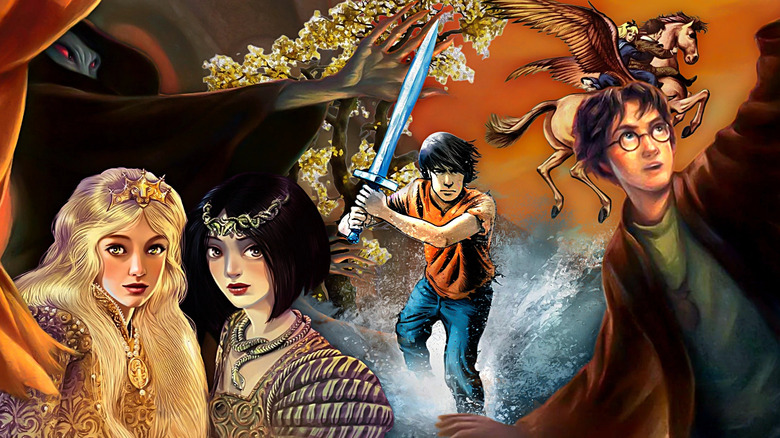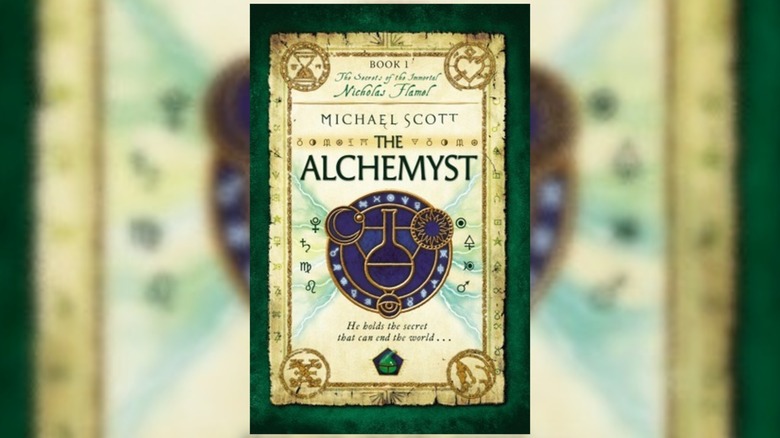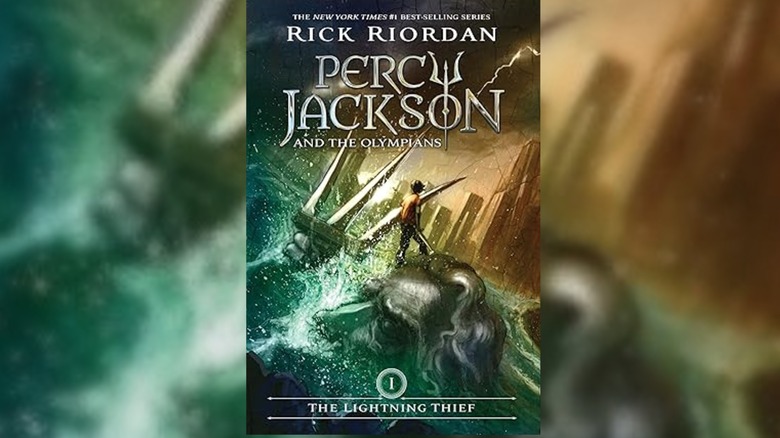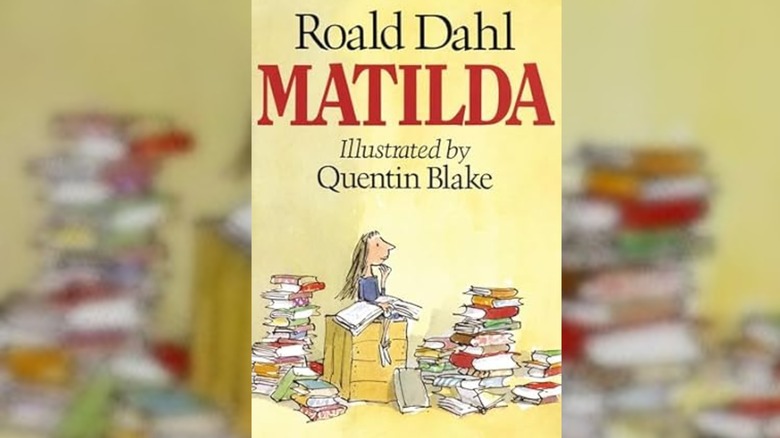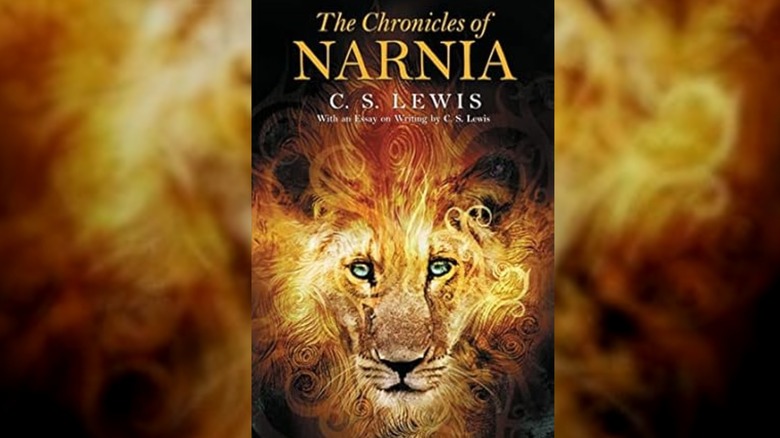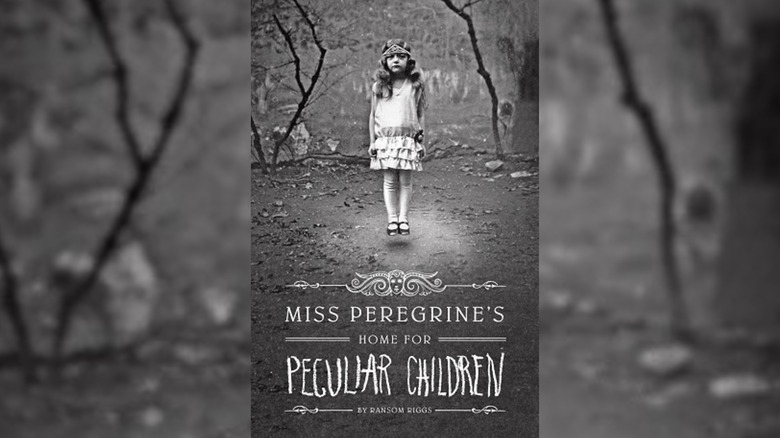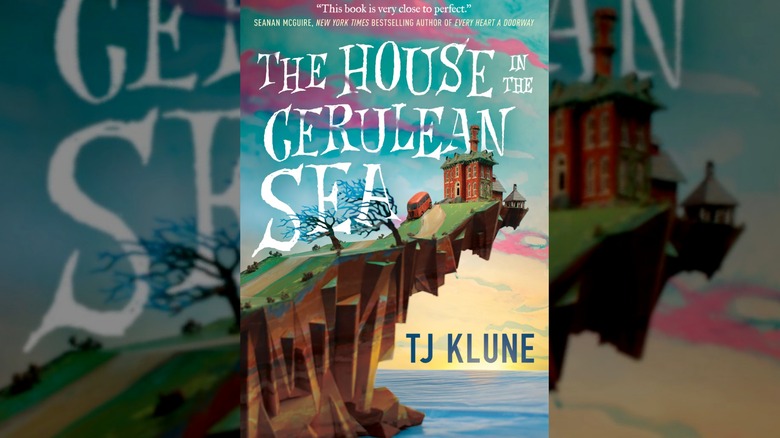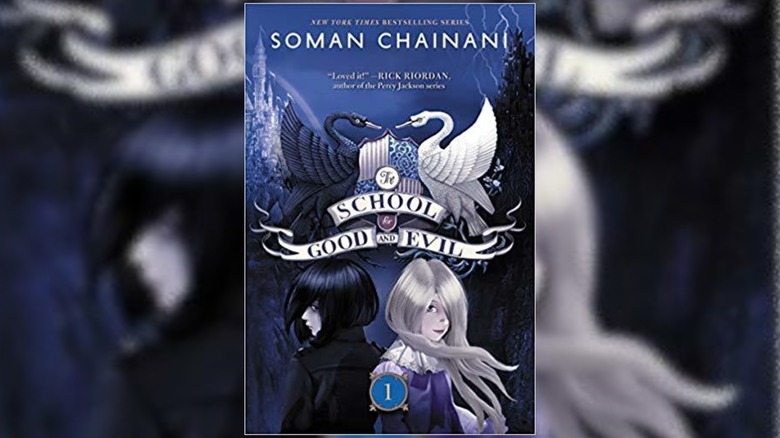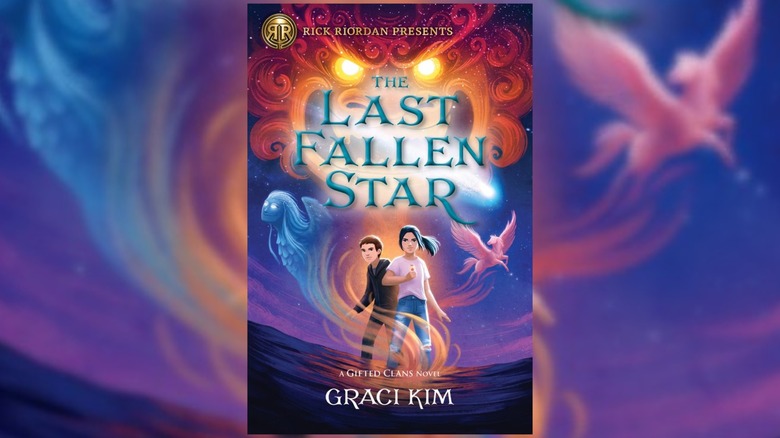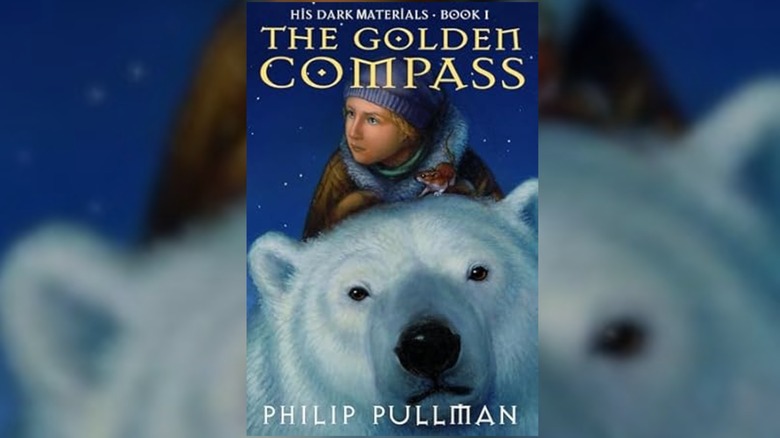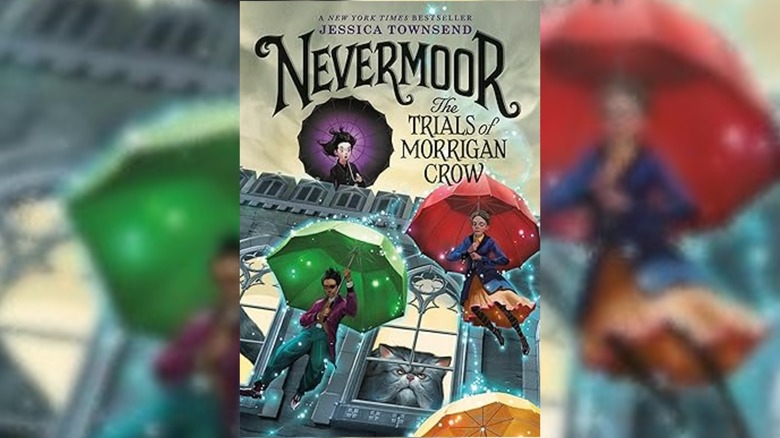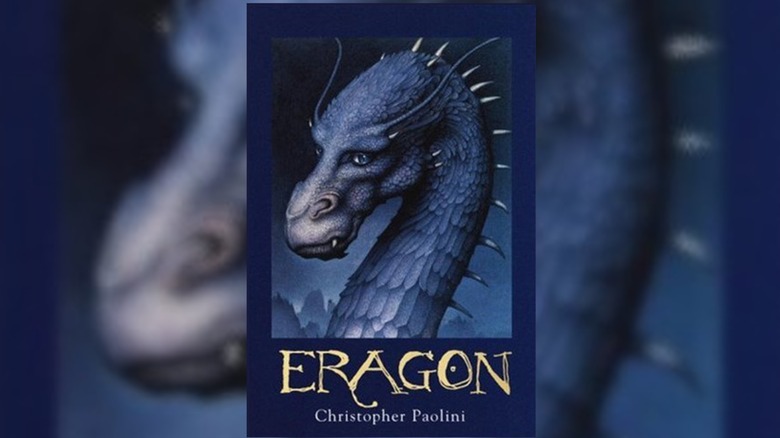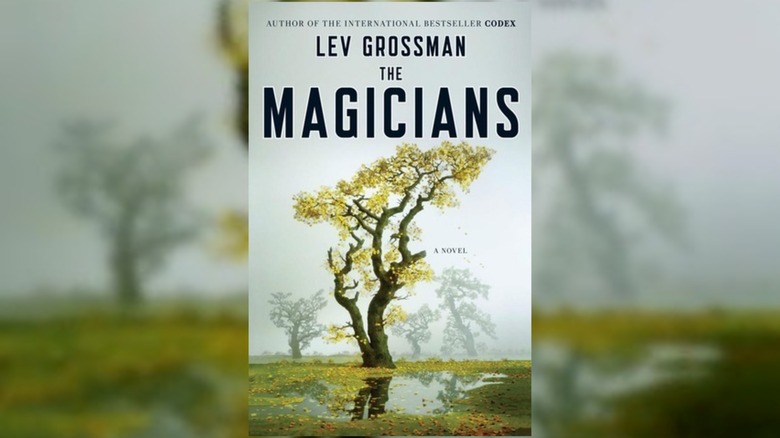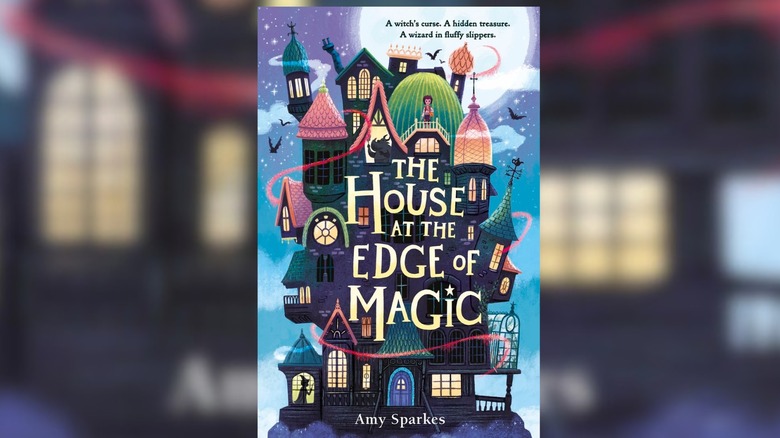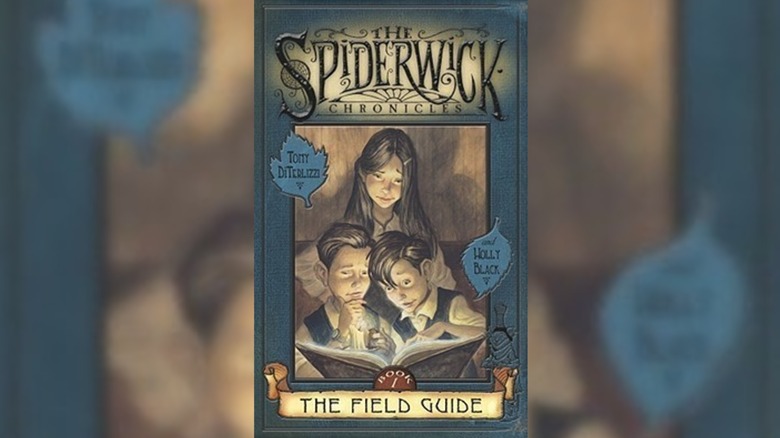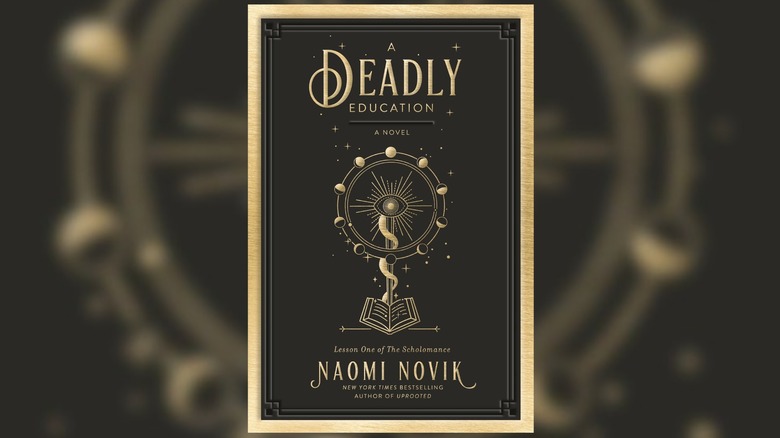15 Best Fantasy Books You Need To Read If You Like Harry Potter
We may receive a commission on purchases made from links.
The "Harry Potter" books are fascinating to kids because they're about a magical school where children battle dark forces while still enjoying the wonder of magic. Adults also enjoy this escapism and revisit these books, not just for the escape, but because of the hope and humanity within as characters face larger than life trials.
Harry Potter wants to find his place in the world, but the negativity from his relatives, the Dursley's, doesn't help. Even though he's relieved when the existence of a Wizarding World is revealed to him, he also has to contend with being a living legend, because he inadvertently defeated the evil Lord Voldemort as a baby. However, Harry learns that his decisions are his true identity, and that's what sets him apart from someone like Voldemort. Unlike his foe, Harry is surrounded by hope and love, and he uses that to remind people that there is always light to fight the darkness.
Of course, "Harry Potter" is just one of the magical stories that teach us how our inner power can shape our world. That's why we're breaking down 15 of the best books like "Harry Potter" that will cast a spell on your imagination after your mischief has been managed in the Wizarding World.
The Secrets of the Immortal Nicholas Flamel
We get a snapshot of who Nicolas Flamel is in "Harry Potter and the Sorcerer's Stone," but it's only meant to set up the importance of the Sorcerer's Stone, also known as the Philosopher's Stone. While Michael Scott's series "The Secrets of the Immortal Nicholas Flamel" is not directly connected to "Harry Potter," it does help fans imagine what the titular philosopher's life may have been like before his life-giving stone became Voldemort's obsession.
In the first book, "The Alchemyst," Nicholas is discovered by Sophie and Josh Newman, twins who think he's an average bookstore owner until an evil magician reveals his identity. This moment in the first book leads to the capture of Nicholas' wife and the theft of a book containing the Sorcerer's Stone's recipe. The twins knew Nicholas way before the magical chaos, and that allows them to take him seriously rather than treat him like an eccentric dreamer who hides in his study, which is what the "Harry Potter" series insinuates in his brief role in the franchise. Michael Scott puts Nicholas in an active position, allowing us to learn new things about him while revealing what it takes for him to blend into the modern world.
Percy Jackson and the Olympians
Before there were movies and a popular TV series, "Percy Jackson and the Olympians" was a book series excelling in its representation of found family and parental sacrifices. These are core elements in the "Harry Potter" series, as Harry, Ron, and Hermione stick with Harry through all his trials and tribulations, including the tragedy of losing his parents and the pressure of being known as The Boy Who Lived. But the sacrifice by Harry's parents, especially his mother Lily, becomes his motivation to protect others, even if it means giving his own life.
Like Harry, Percy suddenly finds himself thrust into a magical fantasy world where he must learn how to fit in among a world of epic gods and their offspring. But Percy's mother, Sally, has a more active role, especially in "The Lightning Thief," which includes a minotaur capturing her as Percy and Grover run to Camp Half-Blood. He also learns of all that his mother has done to protect him, including marrying a terrible man simply because his stench wards off mythical dangers. This information adds an extra dimension to Sally by proving her resourcefulness and creative thinking. It's a perspective we never get with Lily, which is a shame, because it could have revealed her own resourcefulness while delving into her conflict with Voldemort.
Matilda
While J. K. Rowling spends hundreds of pages fleshing out her magical world, Roald Dahl is a master at offering big magic in bite-sized books, and that includes "Matilda," which builds a full world centered on a magical girl and her selfish family in roughly 300 pages.
Like the Dursley's, the Wormwood's do everything they can to stop Matilda's powers. While the Dursley's run to a remote island to escape Hogwarts letters, the Wormwood's send Matilda to a school where she'll be kept in check by a brutish headmistress, Miss Agatha Trunchbull. But amidst the chaos, Matilda finds a friend in Miss Jennifer Honey, a teacher who has been bullied by Trunchbull for years. Matilda and Miss Honey start a friendship that is similar to Harry and Dumbledore's, because of its parental nature, which includes moments where both pairs risk their own safety in exchange for their loved one's freedom.
The Chronicles of Narnia
"Harry Potter" is timeless and immersive because it doesn't feel inherently tied to any specific period of time. However, "The Chronicles of Narnia" aims to fully engage its readers by tethering Narnia to historical events. This is especially true with "The Lion, The Witch, and the Wardrobe," which uses the Blitz in London to send the Pevensie children to the countryside, where they find a magical wardrobe that sends them to a fantastical world where they are destined to become heroes.
The historical elements actually ground the series in reality, allowing it to create a comparison between the real world and Narnia as the children witness power struggles in both worlds. The villainous White Witch is at odds with Aslan, the lion who is Narnia's beloved protector, and their dynamic is similar to Dumbledore and Voldemort's, as the White Witch publicly exudes her power with deception and violence. The tension between Dumbledore and Voldemort is much quieter because Harry is Voldemort's arch nemesis. However, this tension rises to the surface in a way that makes the Pevensie children Narnia's last hope.
Miss Peregrine's Home for Peculiar Children
"Miss Peregrine's Home for Peculiar Children" feels like it's from Luna Lovegood's imagination, as children navigate supernatural powers while facing death and a continuous time loop that includes a bombing during World War II. Luna is fascinated by the mystery and reality of death as she grieves her mother. However, she has an equal fascination with life, which is shown through her curious nature and motivation to learn as she trains to be a member of Dumbledore's Army. Her passion for life and death is shared with Enoch O'Connor, who regularly revives corpses, including one of the peculiar children who died after leaving the time loop.
In the book and film versions of the story, Miss Peregrine is a mix of Hagrid, Dumbledore, and Professor McGonagall, offering guidance, wisdom, and tough love mixed with animal transformation, making her someone that villains fear and children cling to. She also guides a teenager named Jack as he becomes their protector. Like Dumbledore, Miss Peregrine knows that her powers are great yet limited, which is why they both rely on the gifts of the next generation.
The House in the Cerulean Sea
Hogwarts is a safe fortress where children can harness their magical powers, and the same could be said about Marsyas Island in "The House in the Cerulean." However, case worker Linus Baker is not sure about that when he is sent to the island to investigate an orphanage that is allegedly harboring dangerous magical children. The children he meets are nothing like what he read about in his report, and their caretaker, Arthur Parnassus, uses his terrible childhood as fuel to create a home where magical children can thrive.
This story is similar to Dumbledore's, as he makes Hogwarts a safe haven for kids, but we don't spend a lot of time learning how teachers thrive under Hogwarts' protection. We get a small glimpse of this when we revisit Hagrid's possible expulsion under a different headmaster and when we witness Professor Trelawney's firing by Professor Umbridge. However, these brief moments are never expanded upon by one-on-one conversations with Dumbledore, which could have led to a deeper sense of unity.
But in "The House in the Cerulean," Linus and Arthur show us how their strengths and weaknesses create a lasting relationship that also helps them understand the needs of these children. Of course, not every day is perfect, but it's their motivation to try that makes them a family.
The School for Good and Evil
"The School for Good and Evil" series plays with the idea of heroes and villains as best pals Sophie and Agatha are dropped into the wrong magical schools, with the good Sophie heading to the School for Evil and dark Agatha heading to the School for Good. This swap examines how labels influence our identities, and it leads us to wonder what could have been if the Sorting Hat sent Harry to Slytherin and Draco Malfoy to Gryffindor.
The Sorting Hat almost puts Harry in Slytherin, but he begs for an alternative. He does get a glimpse at what his life would've looked like in Slytherin when he uses Polyjuice potion to turn himself into Vincent Crabbe in "Harry Potter and the Chamber of Secrets." It's an eye-opening experience as he witnesses Draco's hateful ways, regretting the fact that he has to agree with his ideas. Like Sophie and Agatha, Harry and Draco realize that their houses have become a part of their personalities as they possibly make decisions based on what their houses expect from them.
Gifted Clans Series
While Harry is treated as an outsider in the conventional world, Riley Oh of the "Gifted Clans" series is a human who feels like an outsider in the magical world. Unlike the Dursley's, Riley's adoptive parents, James and Eunha, make sure that she feels their love despite their differences. She is an integral part of the family's Korean medicine clinic, running the front counter while her parents and sister, Hattie, perform healing magic.
The series begins with "The Last Fallen Star," and it's told from Riley's perspective, helping us understand why she feels lonely, despite her family's love. That loneliness is first shared when she has a run-in with a magical customer who is surprised that Riley is James and Eunha's daughter, stating that he heard that Hattie was an only child. That outside perspective coupled with Riley's thoughts offers a deep emotional connection that is never truly explored in the "Harry Potter" series, due to the fact that the story is not told from Harry's perspective, meaning that we never truly understand Harry's point-of-view while processing a world that doesn't accept him.
His Dark Materials
Philip Pullman's series about children venturing into parallel universes with animal companions tethered to their lifelines walks the line of fantasy and science-fiction. That's something "Harry Potter" can't explore, because it focuses on demystifying magical tropes through mystery and horror rather than focusing on government-led experiments, which allows "His Dark Materials" to chart new paths in fantasy. "His Dark Materials" still has notes of mystery, as children disappear without explanation, which leads Lyra on a mission to save them.
Like "Harry Potter," "His Dark Materials" offers a political narrative with the Magisterium, a government body that's conducting these experiments. In "Harry Potter," the Ministry of Magic denies that Voldemort is back, even rejecting Harry's encounters while Death Eaters manipulate the Ministry. While the Magisterium does deceive the public, its members know exactly what is going on their group, choosing a group-think model rather than inner deception to help them succeed.
Nevermoor Series
Harry doesn't like the special treatment that people give him as the Boy Who Lived, but Morrigan Crow of the "Nevermoor" series hopes to win that favor while escaping a deadly curse. The first book, "Nevermoor: The Trials of Morrigan Crow," introduces us to this young woman who is set to be killed on her eleventh birthday due to a curse that causes her to perform tragedies, like killing a beloved cat. Unlike Harry, she has a support system in this unaccepting world. Her father, Corvus (who is a good version of Jason Isaac's villainous Lucius Malfoy) uses his status as a respected politician to help his daughter, much like how Lucius uses his notoriety to help Draco.
Corvus' influence only goes so far, and Morrigan is saved by a mysterious man who takes her to safety within the city of Nevermoor, much like how Hagrid takes Harry to Hogwarts. Morrigan must earn her place in Nevermoor by competing for a spot in the prestigious Wundrous Society. This competition is similar to the Triwizard Tournament in "Harry Potter and the Goblet of Fire," as prospective members are faced with challenges that will prove their greatness while possibly helping Morrigan escape death.
The Inheritance Cycle Series
Amid the excitement of "Harry Potter" in the early 2000s, Christopher Paolini introduced us to a young man whose boring life is turned upside down by dragons in "The Inheritance Cycle" series. "Eragon" is the first installment, and it introduces us to the title character, a young man content with tending to his family's farm. However, the discovery of a dragon egg leads him toward his destiny as a dragon rider, which also puts him in a position to destroy the evil King Galbatorix, whose responsible for his uncle's death.
While Harry and Eragon want to avenge their families, both young men are also once-in-a-lifetime figures in their respective worlds. Harry is the boy who escaped Voldemort's deadly spell and Eragon is the first dragon rider in 100 years. Their presence is both welcomed yet unsettling as the people around them wonder what danger will come next due to their presence.
The Magicians
"The Magicians" series offers a more mature version of Hogwarts that capitalizes on how fairy tales influence our lives. Quentin Coldwater is a high school senior who is whisked away to a school of magic. He's dreamed about this since he started reading stories about a magical place called Fillory, which is actually real. However, fairy tales are not as happy as they appear, and Quentin finds himself uncovering unthinkable horrors, including a villain known as the Beast.
This series could be compared to the later installments of the "Harry Potter" series, which offer darker themes and a romantic focus that earlier books don't have. While Harry deals with typical teenage hurdles, he is also faced with a revived Voldemort in "Goblet of Fire," allowing the story to veer into scarier territory, much like how the Beasts' presence increases the peril for Quentin. Meanwhile, Harry is also navigating romance as he grows up, and the romantic focus is a key portion of "The Magicians" books and TV show, where it's made to be more of a college experience, allowing us to explore the complexity of love and how these feelings are easily manipulated by villains.
The House at the End of Magic
"Harry Potter" is an underdog story, which is why it can be compared to the series "The House at the End of Magic." Nine is a pickpocket whose skills are highly revered in a thieving community. However, she doesn't want to be loved just for her abilities. She wants to be accepted as the person that she is, which is why she wants a way out. Her wish to escape is granted when a purse ornament that she stole turns into a home with a unique cast of characters who are trapped by a curse.
Nine's life relates closely to Severus Snape's, because he is also accepted by a group that may only want him for his abilities. He has always been treated as the odd man out at Hogwarts, and his connection to the Death Eater's doesn't help. However, he sticks with them in order to protect Harry, who is the son of the woman he loved the most. Lily Potter never treated Severus like an outsider. She saw the good in him, despite the fact that everyone wrote him off as strange. Nine knows that she can be a hero as well, and her new home could give her the chance to prove that she is the good person she wants to be.
The Spiderwick Chronicles
The "Harry Potter" series doesn't spend much time focusing on how Muggles feel about magic, despite their surprised reaction to a flying car in "Harry Potter and the Chamber of Secrets." "The Spiderwick Chronicles" gives us the human perspective to magic that some may be craving after finishing "Harry Potter."
The series follows the Grace siblings who find a field guide that proves that fairies and hobgoblins are living near their new home in a parallel world that can be viewed through the Seeing Stone, which is a portable looking glass. They're shocked by the discovery, but they soon realize that they have the advantage against these evil forces as they use their imaginations and the tools of their modern world to help save other humans.
When magic is noticed by Muggles in "Harry Potter," the Ministry of Magic usually has to step in to modify memories, believing that Muggles can't handle such sights. However, "The Spiderwick Chronicles" proves that regular humans, especially children, could be our biggest asset in the fight against magical beings thanks to their unique problem-solving skills that are focused on saving the world rather than going after their own motives, which is something that plagues the Ministry of Magic.
The Scholomance Series
Hogwarts transitions the reader from the Muggle world to a place where magic instills hope and wonder. The school is a safe haven, until it comes under fire by dark characters trying to bring back the evil Lord Voldemort. But in "The Scholomance" series, the magical school is constantly changing because it's a test of survival. The story is told from the perspective of El, a student who has the brains of Hermione and uses her knowledge and skepticism to avoid death. She's suspicious of any sudden movements, including staircases that suddenly shift. Like Hogwarts, moving staircases are a common occurrence, but El knows that the school doesn't necessarily have her best interests at heart.
The same can't be said for Hogwarts, which is a stable presence for its students and hopes to harbor them safely and further their magical education. That comfort lulls Harry, Ron, and Hermione into a false sense of security, until they realize that Hogwarts may not be as safe as they once thought. Making the danger more apparent in "The Scholomance" series could lead to a predictable story, but Naomi Novik creates an urgency that increases the mystery and enhances the story.
